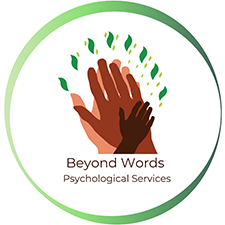A common (and avoidable) mistake transracially adoptive parents make . . .
Have you ever said something like this to your transracially adoptive children after learning that they were teased or judged because of their appearance?
“Your differences are what make you special!”
“I love that your skin/hair is different, it’s so beautiful!”
“It’s okay to be different!”
“They just don’t understand anyone who’s different, that’s why they were being mean.”
You mean well. You want your child to love and embrace their skin color, their adoptee-ness, and their entire identity. I hear this so often from parents. Their instincts tell them this is the best way to support their child. And I get it. You can’t know what you don’t know, especially if you have never lived the experiences of a transracial adoptee.
The problem is the word “different.” It’s extremely psychologically damaging if it is not used in the correct way. Most transracial adoptees want nothing more than to be “the same” – to fit in, to not stand out, to BELONG. As soon as you single them out to reiterate their differences, no matter how loving your intentions, you are doing nothing more than reinforcing that they will never really belong. You are inadvertently supporting the harmful belief that there is something inherently wrong with them because they are “different” – something to be judged or tolerated by others, instead of celebrated or loved. And if you’ve never been the “different” one, it’s hard for you to understand how this becomes painfully internalized.
By no means am I saying you should be colorblind or avoid talking about differences. Just the opposite. You should notice that ALL people are different. You should talk about ALL differences. Differences and diversity should be the norm. Acknowledge that your child looks and feels different, and sit with them in the sadness of being teased. Be cognizant of avoiding language related to the “specialness” of their “differences” when it has already been pointed out in a negative way. Instead, use statements like the following – the first two in your everyday conversations, and the third one when your child is being teased because of their appearance (I say “when” and not “if” because it WILL happen).
“Our differences are what make us special!”
“I love that we look different from each other, and are still both so beautiful!”
“Those kids were being mean because they don’t know how to get along with people who aren’t just like them. That’s THEIR problem. They’re going to miss out on knowing a lot of really cool people in the world, like you.”
It may seem subtle, but it can have an immeasurably positive impact on your child’s self-esteem. By showing your child that their differences can be the reason they are similar to others, that there are commonalities and connections among differences, and that people who view their differences as wrong are the ones with an inherent problem, you are sending a message of belonging.
If you want to be the best parent you can be to your transracial adoptee, join me for the webinar, “Transracial Adoption Bootcamp: Race & Resilience” on May 6th. Instead of not knowing what you don’t know, proactively choose to become aware of what you do not know, so that you can change it. Learn to understand race through the eyes of your child, by learning from adult transracial adoptees who once saw the world through your child’s eyes. Space is limited – register before May 1st at https://growbeyondwords.com/workshops-webinars/.
